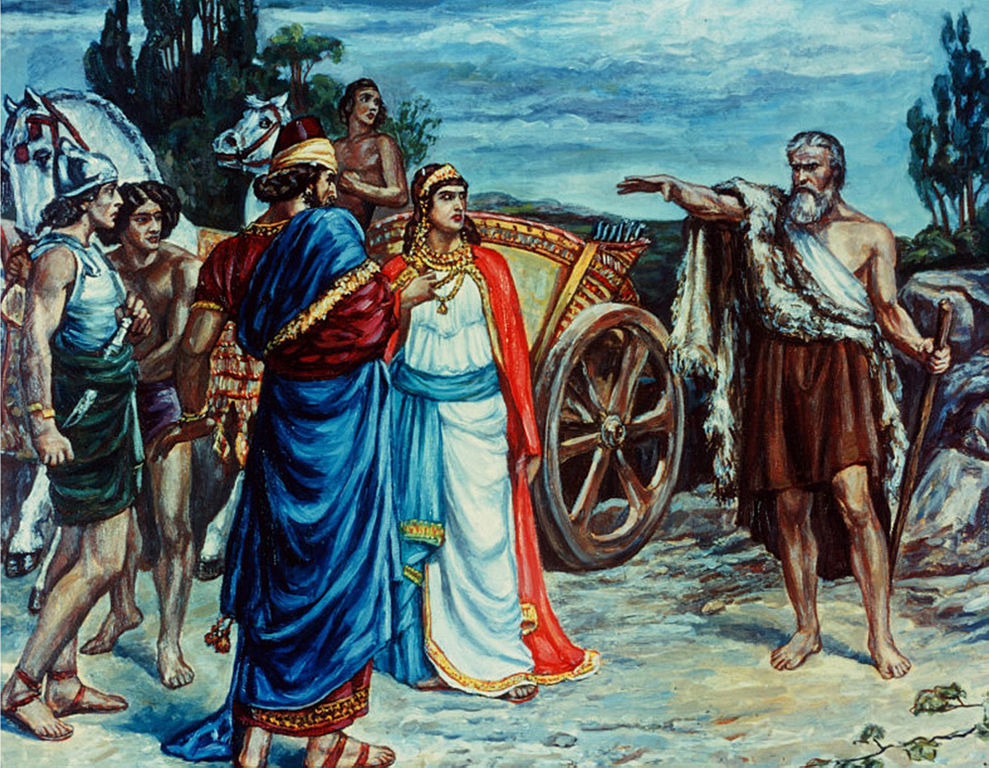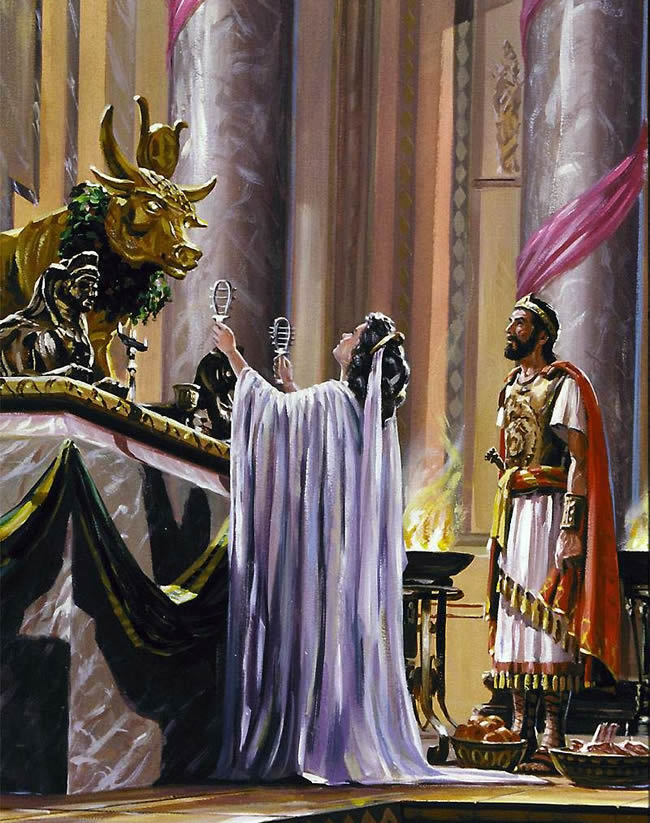 |
| Ahab and Jezebel |
King Ahab and Queen Jezebel were the royal couple of Israel most vilified by later biblical writers, yet it is Ahab who made Israel and its army one of the strongest on the stage of Near Eastern nations and powers in the early ninth century b.c.e. He fortified and beautified the newly founded capital of Israel, Samaria.
Archaeological excavations show that during his reign cities in various regions of his kingdom were built up so that Israel could withstand attack from neighboring peoples. His reputation gained the attention of the Phoenicians to the north so that one of their priest-kings offered his daughter Jezebel to Ahab in an arranged political marriage.
The Bible records that Ahab fought three or four wars with the dreaded Aramaeans and won two of them. The genius of Ahab’s foreign policy seems to be his peacemaking with Judah to the south, the Philistine states to the west, and Phoenicia to the north. Conserving his resources and limiting his battles allowed him to gain concessions from the Arameans.
  |
The real challenge came from the traditional hotbed of imperial ambition, Mesopotamia. Here the fierce Assyrians were mobilizing their forces to reestablish their empire in the western end of the Fertile Crescent. Only a makeshift alliance of all the kingdoms could stand in Assyria’s way.
The Assyrian records tell of a battlefield victory at Qarqar (853 b.c.e.) in the Orontes Valley in the coastal region of present-day Syria, but it was not decisive enough for the victors to push on toward their goal. Phoenicia was not even touched, much less Israel. Other minor losses for Israel during this time are reported in the Moabite Stone: A small region far to the southeast (present-day Jordan) seceded from the hegemony.
Ahab also knew how to run the internal affairs of a state. He relied on the new capital of Samaria to integrate the non-Israelite interest groups, chiefly the advocates of Baal and Asherah worship, while the older city of Jezreel served as residence to the traditional elements of Israelite culture. This balance suggests that Ahab allowed the building of foreign temples, though he showed some wavering attachment to the Israelite God.
The explanation for this double-mindedness, according to the Bible, was his increasing submission to his Phoenician wife, Jezebel. According to the geologies given in Josephus and other classical sources, she was the great-aunt of Dido, banished princess of Phoenicia and legendary founder of Carthage.
She was an ardent devotee to Baal, working behind the scenes to achieve dominance for her religion and dynasty. She tried to eliminate the all-traditional prophets in Israel and plotted against the famous prophet Elijah.
   |
She outlived her husband by 10 years and only died when her personal staff turned against her in the face of a rebellious general. Her sons and daughter went on to rule: Ahaziah was king for two years after Ahab’s death; then her son Joram ruled for eight years; her daughter Athaliah married the king of Judah, then ruthlessly killed all offspring of her own son so that she could rule for six years after her son died.
In the biblical account Elijah, the prophet of Israel, is the unadulterated light that casts the reputation of Ahab and Jezebel into dark shadows. Ahab stands as a pragmatist who compromises his faith and coexists with idolatry, while Jezebel takes on the role of a self-willed and idolatrous shrew whose drive for power undermines divinely balanced government. In the New Testament, Jezebel becomes a type of seductive false prophetess who gives license to immorality and idolatry under the cloak of religion.

